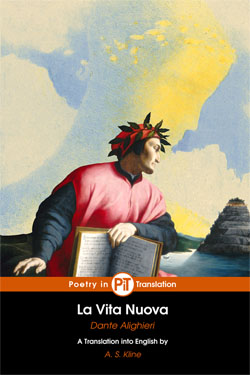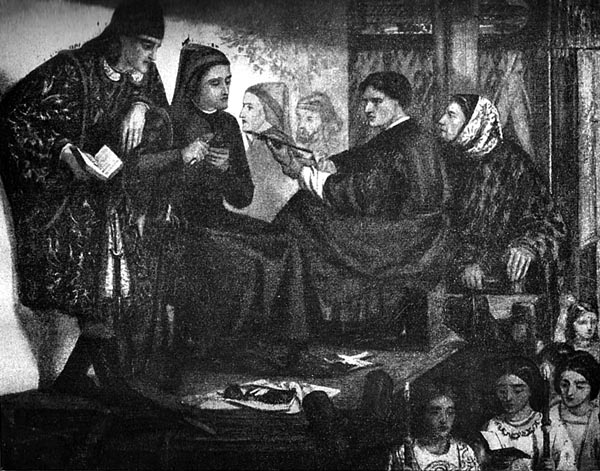La Vita Nuova (The New Life)
Dante Alighieri
With illustrations by Dante Gabriel Rossetti (English, 1828 - 1882).

Listen to audio-book edition sample:
Narrated by Jack Wynters
- Home
- Browse below
- Download
- Buy This Book
The New Life
About This Work
Composed around 1294, in Italian, the Vita Nuova tells the story of Dante's encounters with and love for Beatrice, culminating in her early death and its effect upon him. Utilising and developing the conventions of Courtly Love, in a mixture of prose and verse, Dante deepens the emotional content of the genre, while pointing the way towards the intellectual and spiritual journey of the Divine Comedy. Indeed the final section of the Vita Nuova contains his commitment to the writing of the greater work, in which Beatrice comes to represent Divine Philosophy, guiding the poet through Paradise towards ultimate truth, and embodying in her earthly and transcendental form the beauty and love which emanate from it.
In the Vita Nuova Dante's own emotional reactions are made the inner subject of the work, in a groundbreaking manner which foreshadows the Commedia's intensity, and the personal nature of the poet's quest, not merely to seek for meaning but to attain it spiritually.
About the Author
Born in 1265 in Florence, from which he was banished in 1302, dying in Ravenna in 1321, Dante set the Divine Comedy in the year 1300, when he was thirty-five years old and 'in the middle of our mortal life'. The setting allows him to utilise the past symbolically, exploit the present politically, and anticipate the future in simulated prophecy.
The Commedia throughout reflects his love for 'Beatrice' whom he first saw at a young age in a church in Florence, and who came to represent for him Intellectual and Spiritual Beauty. The story of his love for her, her early death, and his inspiration to write the Commedia are told in his prose work La vita nuova, The New Life, of 1294.
While never returning to Florence after his banishment, the city remained a crucial focus of his thoughts and memories, and while eating the 'bitter bread' of exile his meditations on that city, on Beatrice, and on the moral challenges of his age, led as he had promised in The New Life, to this great work, of explanation, aspiration, and ultimately spiritual exaltation.

‘Giotto Painting the Portrait of Dante’ - Dante Gabriel Rossetti (1828 – 1882)
© Copyright 2000-2002 A. S. Kline, All Rights Reserved
This work may be freely reproduced, stored and transmitted, electronically or otherwise, for any non-commercial purpose. Conditions and Exceptions apply.
Last Modified 15th May 2010